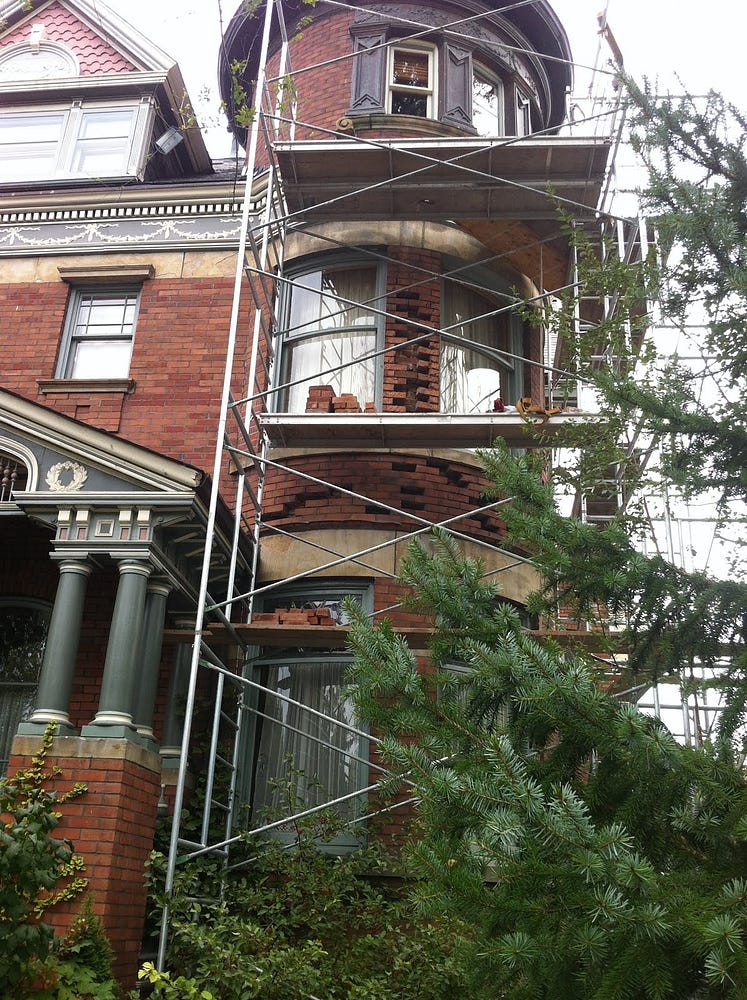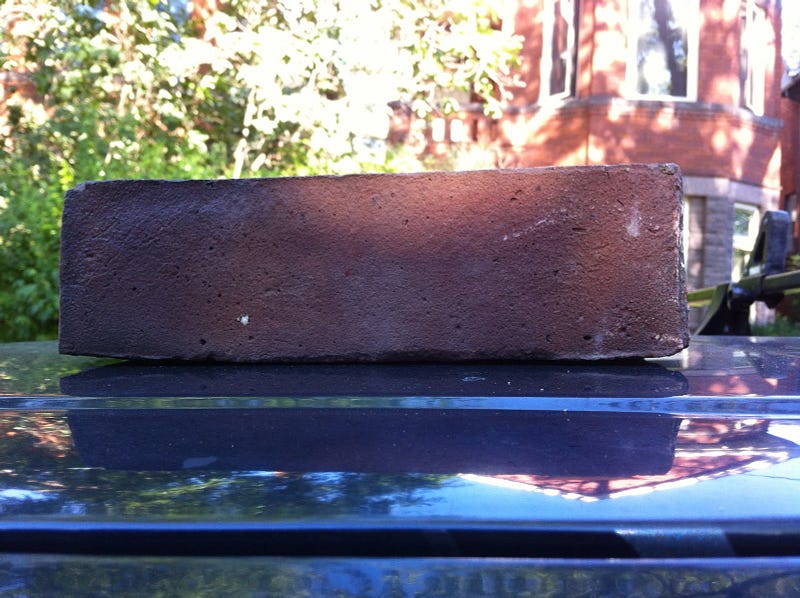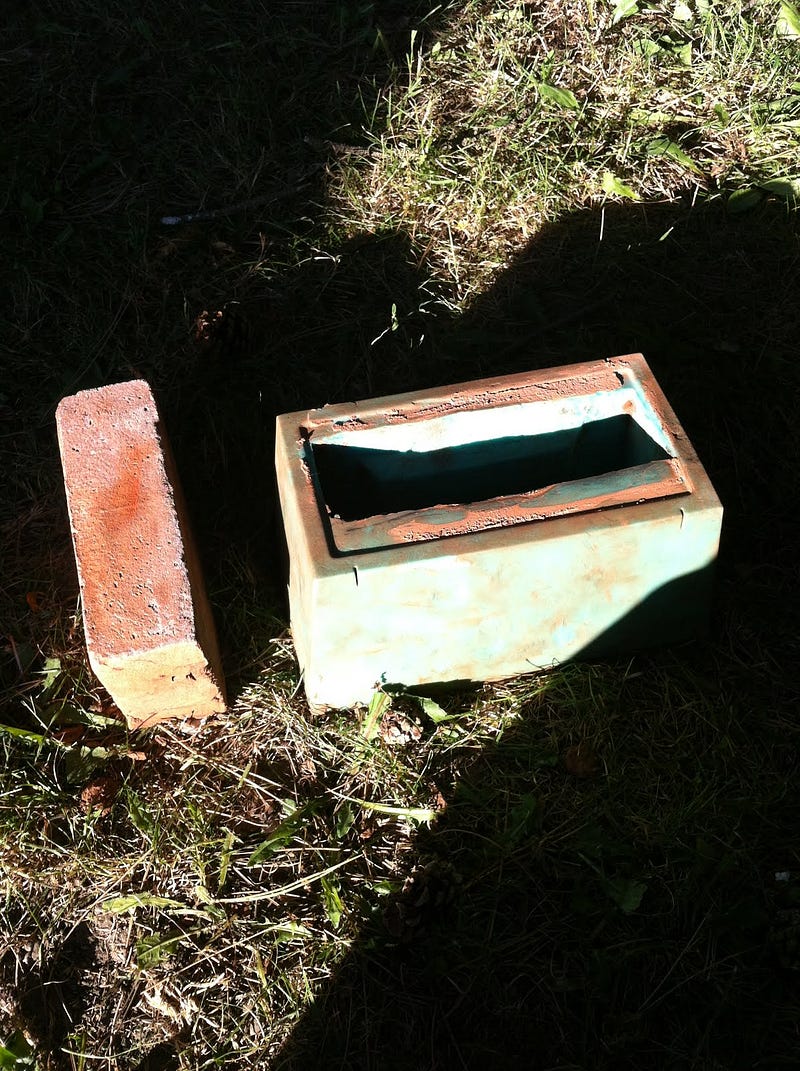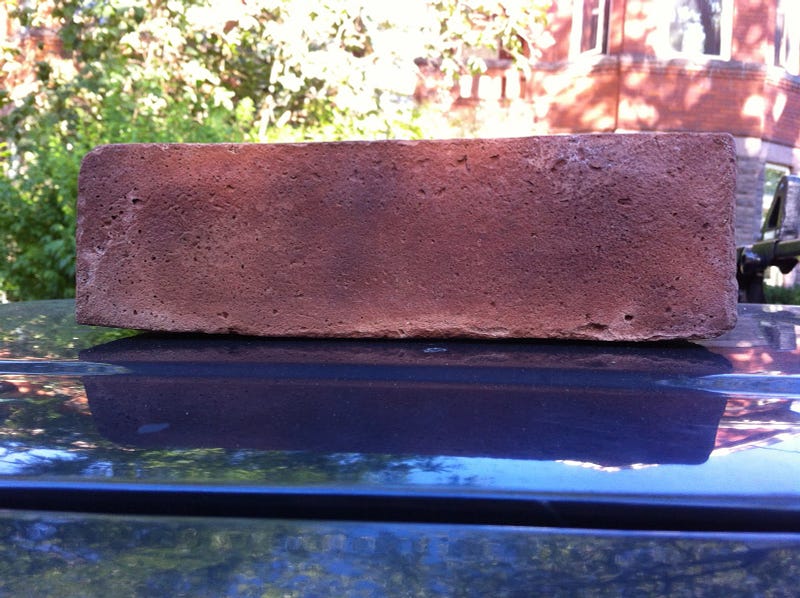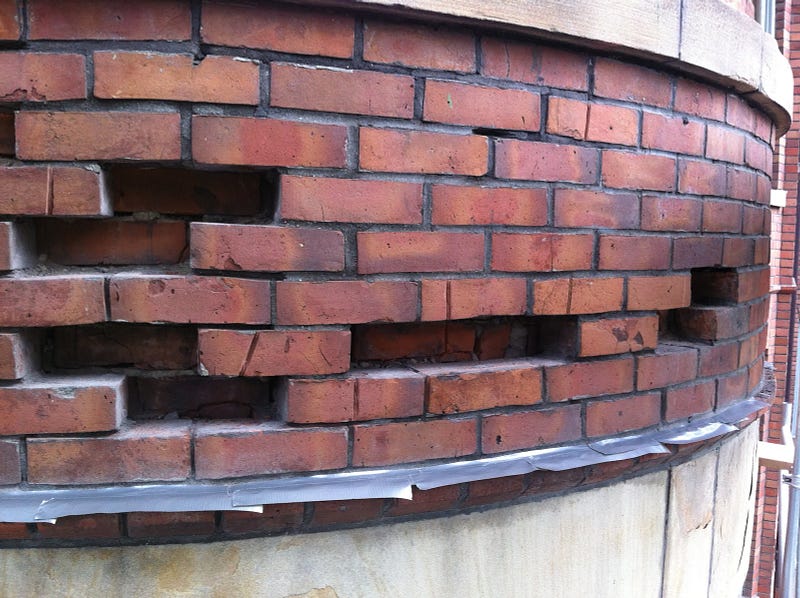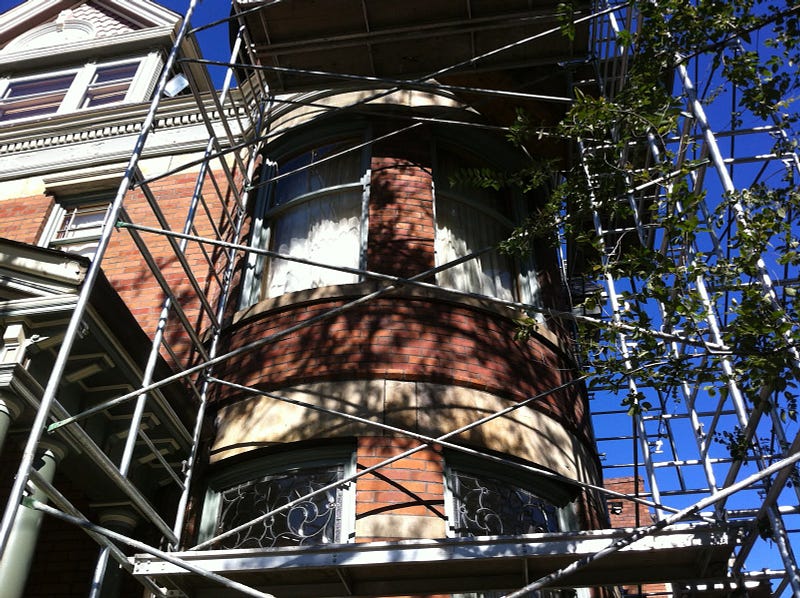As I’ve mentioned before, when bad bricks have to be dealt with, there are, within my own methodologies — and also within the restoration industry — two ways to approach the issue.
For one, replacement bricks can be procured, as was discussed in this blog post.
Another method is to “refurbish” the bricks using a proprietary material, for example this one, which is a single-component, cementitious, mineral based mortar specifically designed for the restoration of brick surfaces. Furthermore, it is vapor permeable and contains no latex or acrylic bonding agents or additives.
In the Fall 2006 issue of “Traditional Masonry”, a former trade publication, there was an article by Loretta Hall, titled “ To Repair or to Replace — That is the Question”. It begins with the statement: “‘Solid as a brick wall’ is a nice metaphor, but historic buildings are often peppered with spalled, broken, or missing brick. Restoration experts must make a few important choices. Are damaged bricks repairable, or should they be replaced? Missing bricks do have to be replaced, but with what — vintage, salvaged brick or new, custom-made replicas? Not surprisingly, opinions differ on the relative merits of each option.”
Another tidbit of interest from the same article:
“Damaged or deteriorated brick can be rebuilt using mortars formulated to match the original material in both appearance and physical properties. “Physical compatibility will give you a long-term, guaranteed repair that’s not going to change in 10 or 20 years,” says Rude of Cathedral Stone Products. He stresses the importance of matching the repair material to the original brick.”
So “rebuilding bricks” is a bonafide method of approaching brickwork restoration, and one that we, at Invisible Tuckpointing Ltd. in Toronto, have seriously relied upon for years.
The picture below exhibits a typical example of our brick rebuilding process / result. The two bricks on the right have been reconstructed, while the unit on the left is original.
Heritage masonry is more art than science, I personally believe, and so my best advice in selecting the right mason for you is, in addition to integrity, to look for the creative type.


